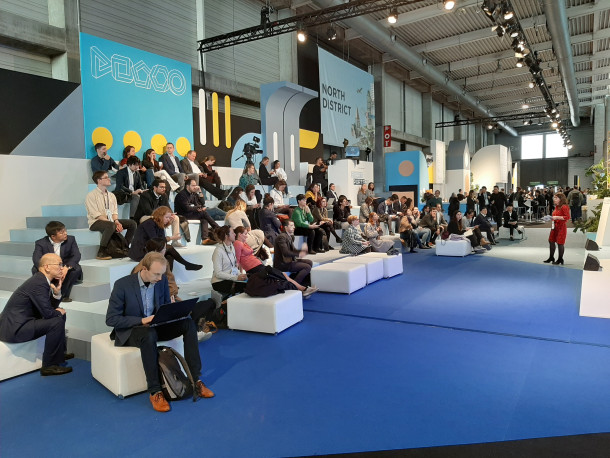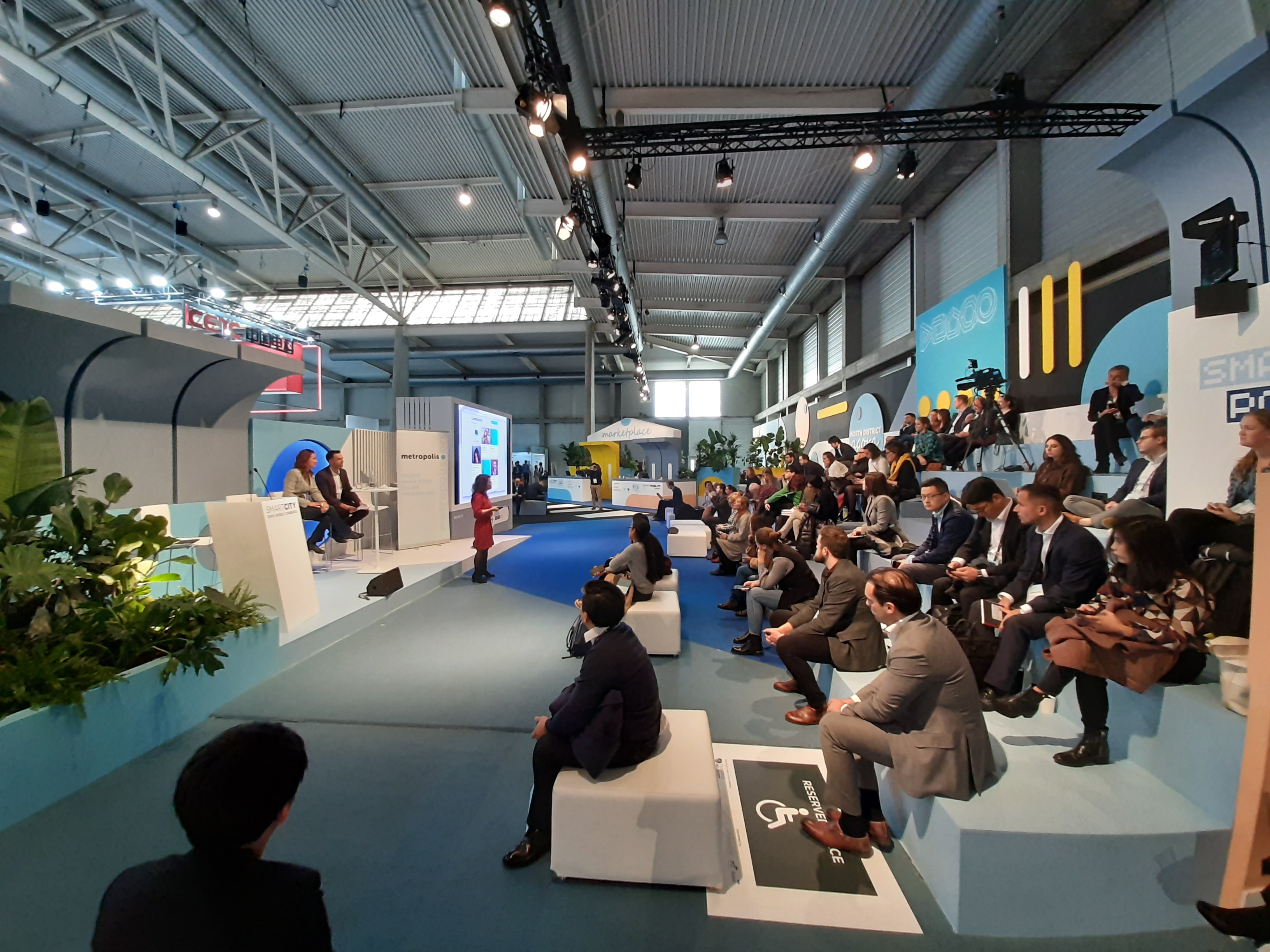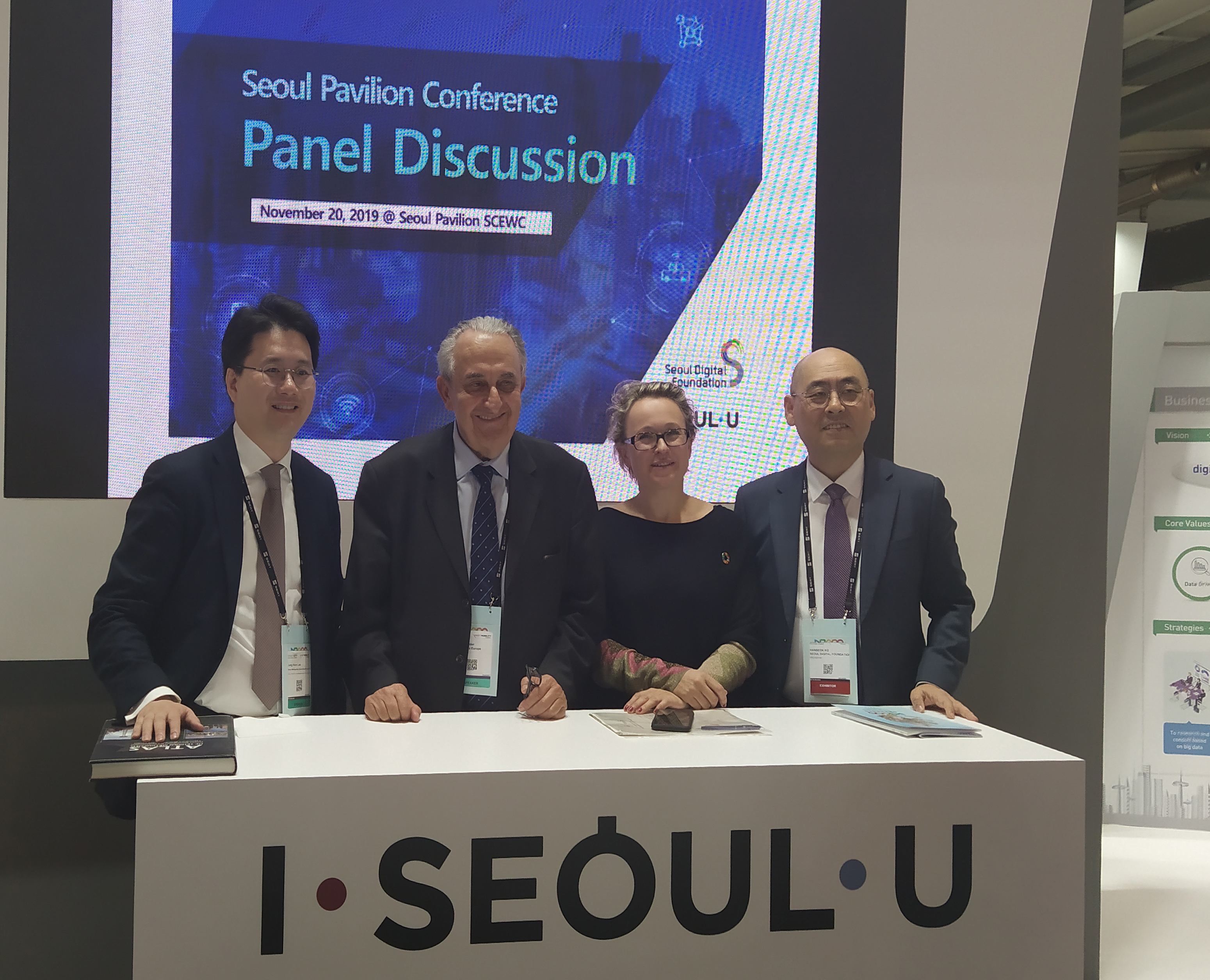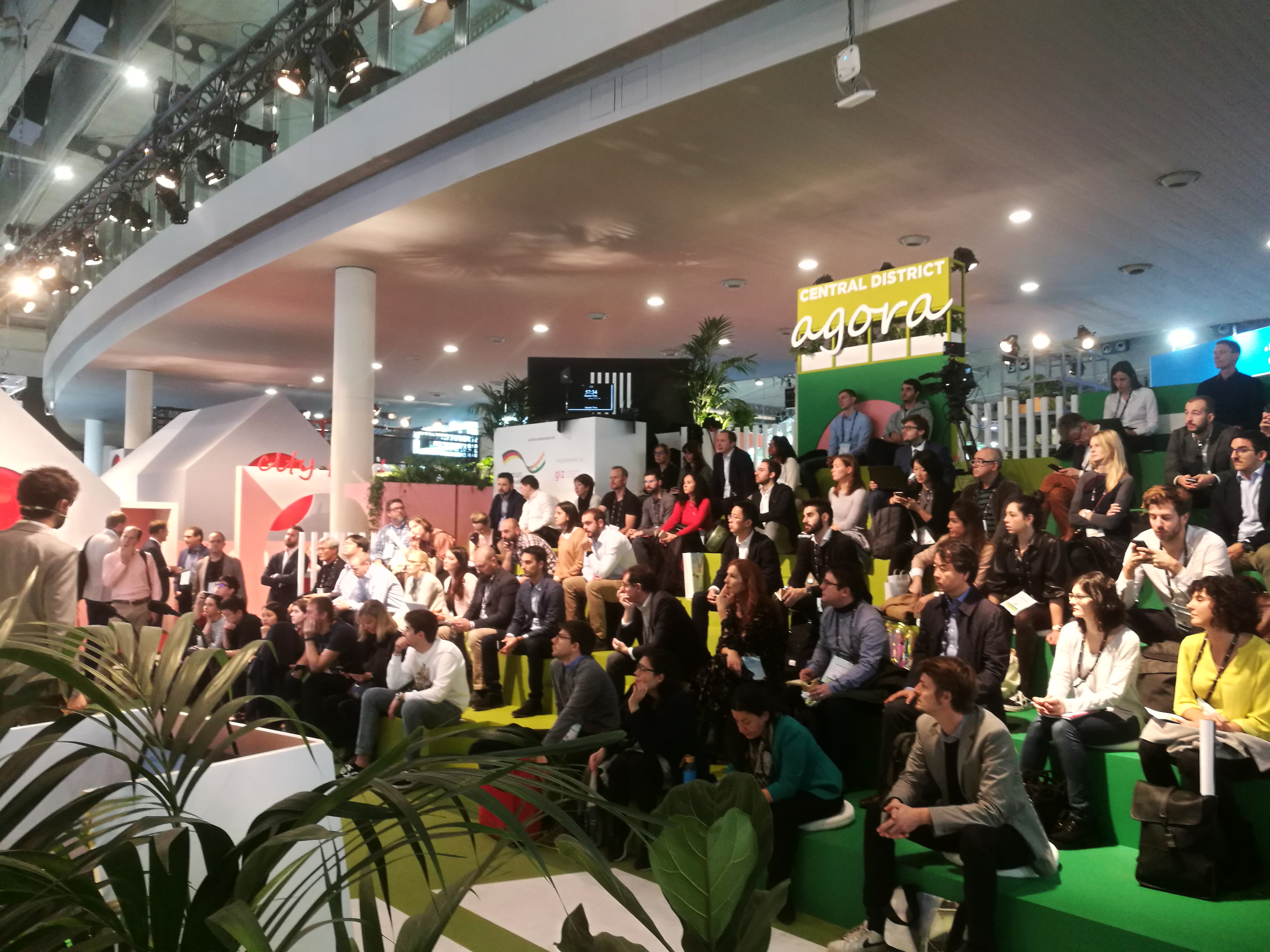
Metropolization at the core of the future of smart cities
The challenges that smart cities face at the metropolitan scale are debated at Smart City Expo 2019
With an increase of over 3,000 visitors compared to last year, the 9th edition of Smart City World Congress (SCEWC) took place in Barcelona last week, from the 19th to the 21st November. The discussions supported by Metropolis during the event were focused on the challenges that smart cities face at the metropolitan scale, putting citizens at the heart of the debate.
The participation of Metropolis members in several sessions of the congress helped in making metropolization one of the core themes of smart cities’ future. The emphasis on this topic made participants reflect on digital solutions for urban spaces in a complex environment of urbanization and population growth. Representatives from major metropolises gave insightful keynote speeches and presentations, namely from Athens, Barcelona (city and metropolitan area), Berlin, Brussels, Buenos Aires, Johannesburg, La Paz, Lisbon, Lyon, Madrid, Montevideo, Rabat, Ramallah, Rosario, São Paulo, and Seoul.
The opening day saw Lia Brum, Content Curator at the Metropolis Secretariat General, introducing the session on the use platform. Acknowledging the fruitful collaboration between Metropolis and the City of Berlin, she highlighted the potential of this tool in promoting sustainable urban development at the metropolitan scale. Contributions from use Community Manager Camille Toggenburger, and of urban innovation consultant Gabriel Bello Barros focused on the importance for city-makers to learn from international case studies to understand major urban challenges.

Key discussions about metropolitan governance were particularly held during the panel “Metropolitan Governance: Connecting Urban Cores with their Peripheries”, also on the 19th November, when the Metropolis Secretary General, Octavi de la Varga, and Joan Clos, former UN-Habitat Executive Director, discussed the key role of metropolitan governance in global agendas. Not being one-fits-for-all formula, the models of metropolitan governance share common challenges when tackling urban issues that go beyond municipal boundaries, such as the lack of political recognition and reduced fiscal autonomy. “Urban spaces don’t have theoretical problems, they have to face real problems that usually go beyond municipal boundaries” stated Joan Clos. Xavier Tiana, Head of International Relations of the Barcelona Metropolitan Area (AMB), followed the discussion moderating a panel session on the realisation of the smart city vision at the metropolitan level.
On the 20th November, the Seoul Metropolitan Government organized the side event “Smart City Solutions based on Citizens Engagement” to discuss the challenges of social participation in smart cities. The speakers brought in different perspectives on the topic. Notwithstanding, they all insisted that top-down decision-making to digitalize urban spaces can undermine the sustainability of the process. “Innovation itself includes chances of failure” said Ko Hanseok, President of Seoul Digital Foundation, while Giorgio Prister, President of Major Cities of Europe, reminded us that “data are just the starting point of smart cities”. During the session, Lee Junghoon, professor at Yonsei University, presented the “2019 Smart Cities Index report”, analysing 20 case studies of Smart Cities around the world.

On Thursday 21st November, Gil Lladó, head of the energy office at the AMB, presented the Metropolis Energy GovernAnce pilot project (MEGA), during the session “Energy Governance”. The project fostered the exchange of knowledge between the AMB, Lyon and Montevideo, on how metropolitan areas address governance in the energy transition process towards a low-carbon society. To illustrate his presentation, Mr. Lladó introduced to the public, the case of the first public bidirectional solar charging station (V2G) in Spain, implemented in the city of Molins de Rei, in the metropolitan area of Barcelona. This facility converts the sunlight into electricity not only to charge electric vehicles but also to supply the municipal sports center with energy. Other examples on how to deal with the energy transition from a metropolitan perspective are available in the report of this pilot project.

Last but not least, for the second consecutive year, the activities of the City Managers Days took place within the framework of SCEWC. Click here for the thorough coverage of City Managers Days 2019.
Metropolis and Fira Barcelona, institution responsible for the organization of SCEWC, have a collaboration agreement that establishes our association as one of the event’s supporting institutions until 2020. With this partnership, Metropolis enhances its positioning at the world’s leading event for cities, and opens up new opportunities of visibility and leadership for our members. For more information on this agreement and opportunities of collaboration at the next edition of SCEWC (November 17-19, 2020), please contact the Senior Manager for Institutional Relations at the Metropolis Secretariat General, Ms Agnès Bickart abickart(at)metropolis.org.

